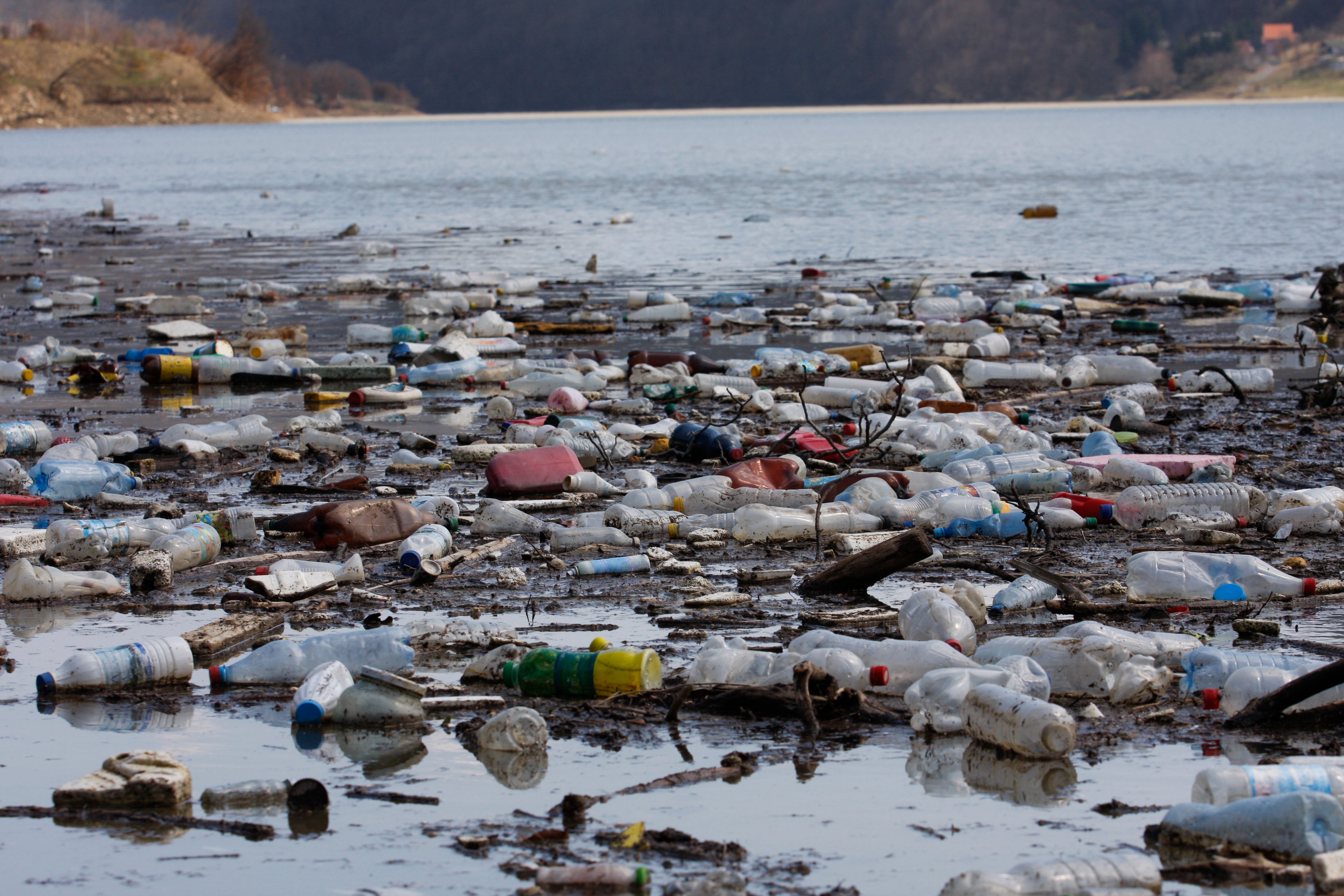River floods are boosting the global spread of plastic, study finds
Exclusive: Regions with highest plastic pollution tend to have lowest number of flood defences, research says

River floods are boosting the spread of plastic around the world, a study has found, raising potentially severe health risks for people and wildlife.
The research revealed that, globally, a low-severity flood can boost the spread potential of plastic nearly 10-fold, when compared to non-flooding conditions.
However, the ability of floods to boost the spread of plastic is greatest in developing regions, which tend to have the highest rates of plastic pollution and the lowest number flood defences, the study said.
Bangladesh is the country facing the highest increase in the spread of plastic during floods, according to the results. In Bangladesh, a low-severity flood can lead to a 40-fold increase in the spread potential of plastic, when compared to non-flooding conditions.
The spread of plastics is likely to be even higher under high-severity floods, the authors added.
The findings, published in Environmental Research Letters, are the first to highlight the role that river floods are playing in aiding the spread of plastics across the world, said lead author Caspar Roebroek, a PhD student studying plastic pollution at ETH Zurich in Switzerland.
“The problem with the spread of plastic is the further it goes from where it comes from, the harder it is to clear up,” he told The Independent.
“If there’s plastic dumped in a city, it’s quite easy to clean up. But if it gets flushed out of the city and gets into the sewer network or river channels, it’s going to be much more difficult to clean up.”
The world produces around 350 million tonnes of plastic a year. It is not quite clear where all plastic waste ends up, but is thought that between 10,000 and 100,000 tonnes of what is produced each year ends up in our oceans.
For the new study, the researchers compared global flooding data with a global database showing the distribution of “mismanaged” plastic pollution. This is plastic waste that is not being recycled or disposed of by an official system.
By comparing the two datasets, the researchers were able to deduce how floodwaters could be helping plastic pollution spread.
The researchers primarily looked at how low-severity floods, otherwise known as “10-year” floods, could be affecting the spread potential of plastic. A 10-year flood is one that has around a 10 per cent chance of occurring in any given year.
One major concern with the spread of plastic in rivers is that it could lead to pipes used for flood defences becoming blocked, said Mr Roebroek.
“This has already been found in southeast Asia,” he said. “If a big piece of plastic travels through rivers and gets stuck in hydraulic infrastructure, it will basically block the pipes that are used to manage floods. This can then lead to floods being worsened.”
The transport of small plastic fragments, known as microplastics, can also pose risks, said Mr Roebroek.
“If plastic breaks down, then it gets much harder to control and it can get basically anywhere,” he said. Microplastics have previously been discovered everywhere from inside the bodies of penguins in Antarctica to near the top of Mount Everest.
“The exact damage this is having on the ecosystems is not conclusively known yet,” he said. “But we know that animals are getting trapped in plastic and dying because they can’t get out. Animals are also eating plastic. In the end, this could affect humans because we eat the animals.”
Join our commenting forum
Join thought-provoking conversations, follow other Independent readers and see their replies
Comments

Bookmark popover
Removed from bookmarks